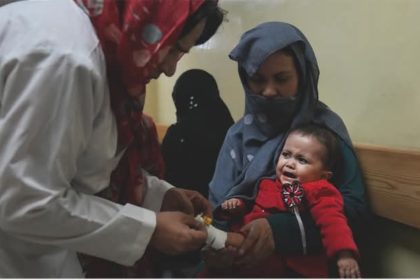Yaoundé, Cameroon– Taking a step to combat the HIV/AIDS epidemic, Cameroon has launched a three-test HIV testing algorithm recommended by the World Health Organization (WHO). This new method aims to significantly enhance the accuracy of HIV diagnoses, with the ultimate goal of eliminating the pandemic by 2030.
Minister of Public Health Manaouda Malachie announced the implementation of this groundbreaking strategy during a press conference on Tuesday in Yaoundé, the nation’s capital.
“This algorithm requires that any new person found to be HIV-positive undergoes three reactive tests consecutively within health facilities and community organizations,”
Malachie explained. The new testing method is designed to ensure more reliable and consistent results, reducing the likelihood of false positives and negatives that have plagued previous testing protocols.
The WHO-recommended algorithm will initially be rolled out and evaluated in four key regions: Center, South, Littoral, and West. These regions were strategically selected based on their population density and existing HIV prevalence rates. Following a thorough evaluation of its effectiveness, the health ministry plans to extend the testing algorithm to the entire country.
The initiative is a significant milestone in Cameroon’s ongoing battle against HIV/AIDS. Currently, about 500,000 people are living with the disease in the country, underscoring the critical need for effective diagnostic and treatment measures.
“The new method is an important step toward eliminating the pandemic by 2030,” Malachie emphasized, reflecting the government’s commitment to meeting global health targets and improving the quality of life for its citizens.
The introduction of the three-test algorithm marks a shift towards more rigorous HIV testing procedures. Under the new system, individuals who test positive in an initial screening will undergo two additional tests.
This triage approach is designed to confirm the presence of the virus with greater certainty before any diagnosis is communicated to the patient.
Health experts and community organizations have welcomed the initiative, highlighting its potential to transform HIV testing and treatment across the country.
“Accurate testing is the cornerstone of effective HIV management,” said Dr. Josephine Ekome, a leading HIV researcher in Cameroon. “With this new algorithm, we can ensure that those who are diagnosed receive the appropriate care and support they need.”
The announcement comes at a time when Cameroon is grappling with a high HIV prevalence rate, particularly among young people and vulnerable populations.
According to data from the World Bank, Cameroon had a population of over 27.9 million in 2022. The prevalence of HIV among adults aged 15 to 49 is estimated at 3.6%, highlighting the urgent need for enhanced testing and treatment efforts.
The new testing algorithm also aligns with global health initiatives aimed at ending the HIV/AIDS epidemic. The United Nations has set an ambitious target to end the epidemic as a public health threat by 2030, a goal that Cameroon is committed to achieving through innovative strategies and robust health policies.
To support the rollout of the new testing method, the Cameroonian government has partnered with international health organizations and local community groups. Training programs are being conducted for healthcare providers to ensure they are well-equipped to implement the new algorithm effectively. Additionally, awareness campaigns are being launched to educate the public about the importance of regular HIV testing and early diagnosis.
“We must work together to ensure that everyone has access to accurate HIV testing and treatment,” Minister Malachie urged. “This is not just a health issue; it is a matter of social justice and human rights.”
As the first phase of the implementation begins, there is a sense of cautious optimism among healthcare workers and the general population. The success of the new testing algorithm could serve as a model for other countries in the region facing similar challenges in their fight against HIV/AIDS.
With continued support and collaboration, Cameroon hopes to turn the tide in the battle against HIV/AIDS, moving closer to a future free from the burden of this devastating disease.




